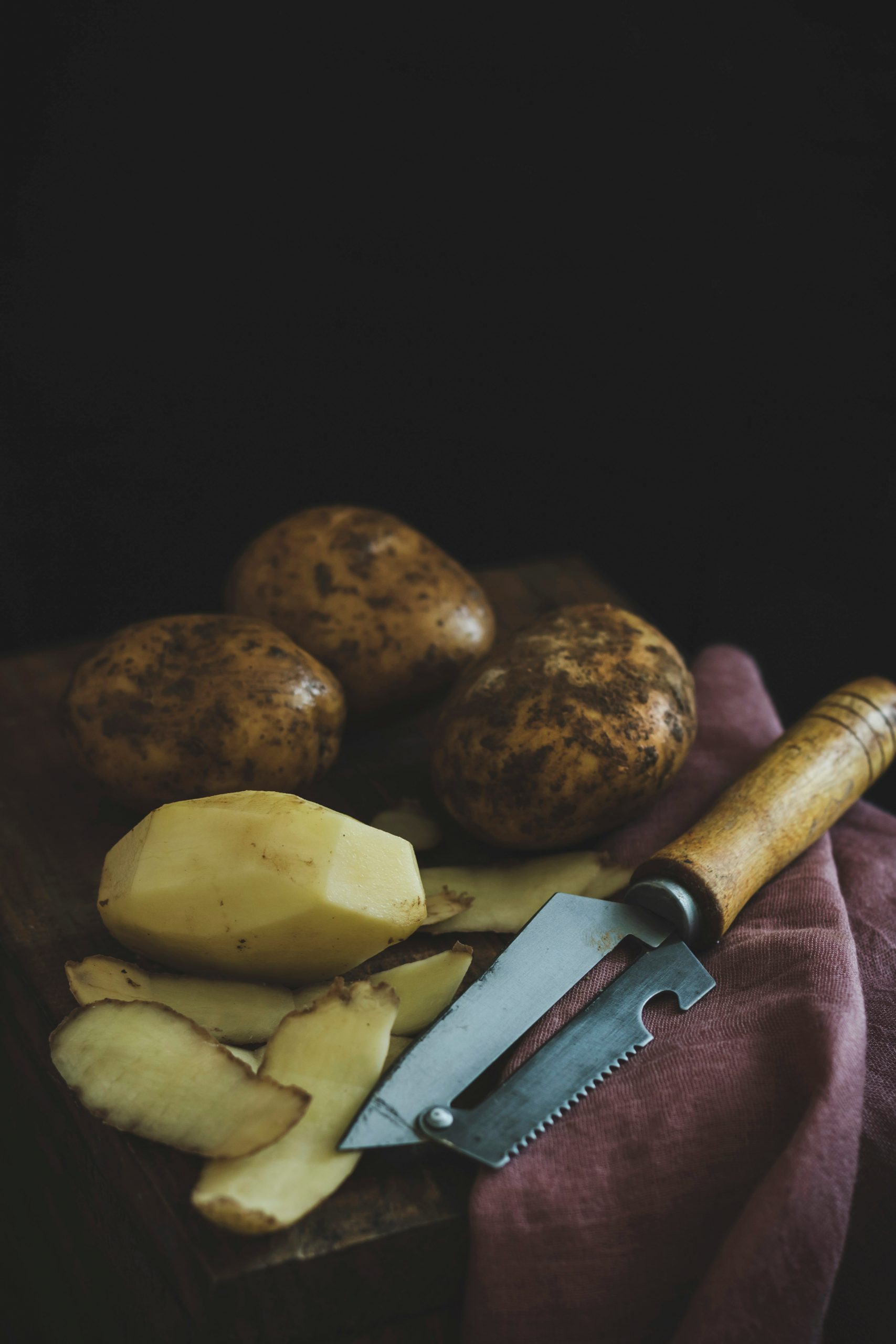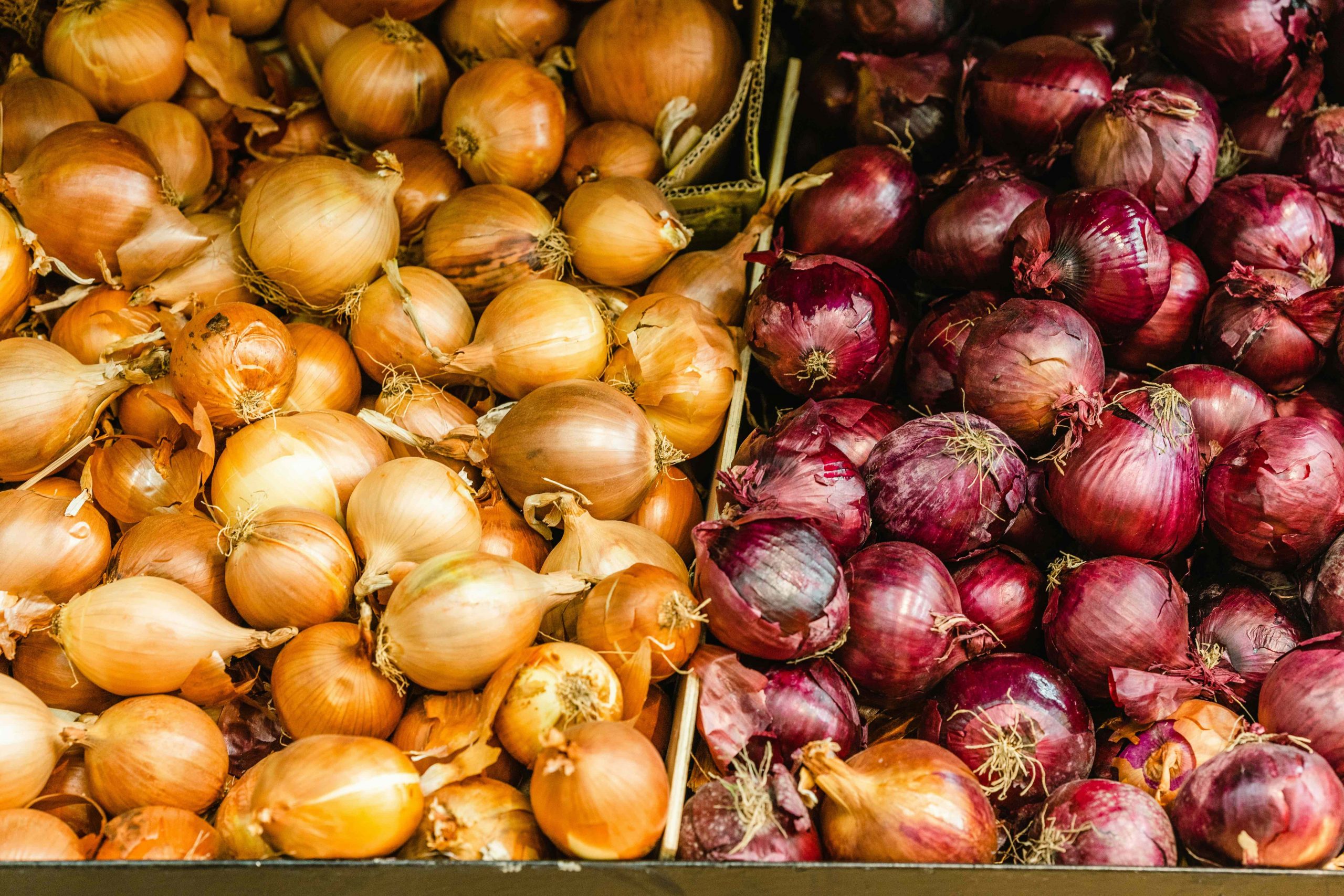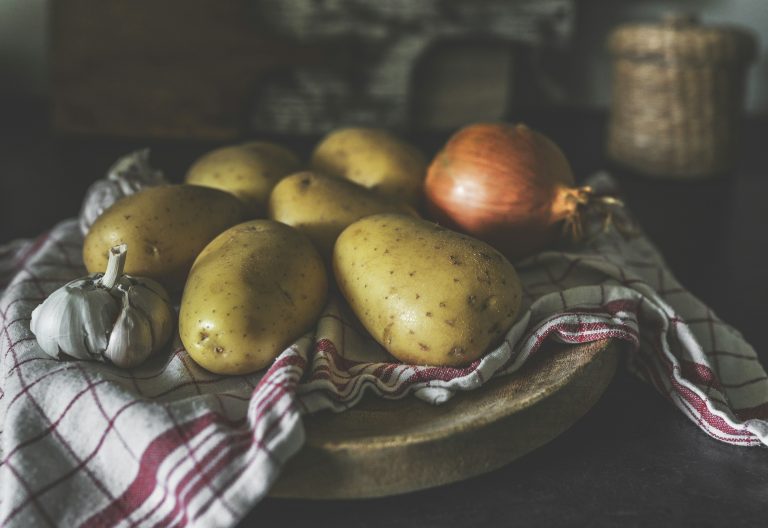It might be a surprise, but potatoes and onions shouldn’t be stored next to each other. They may make the perfect base for stews, casseroles, and soups, but aren’t the best bunk mates.
What’s the big deal?
Onions emit ethylene gas, which speeds up the ripening process of anything it comes in contact with, much like bananas. Ethylene gas is great for speeding up the ripening process for say, avos or mangoes, but we don’t want it affecting the shelf life of our newly bought potatoes.
If you do store them together, you can expect your sack of potatoes to start sprouting and growing, or have gone off, and the starch and sugars have started to ferment, turning the insides into the most foul-smelling liquid.

How to store potatoes
Potatoes can last up to five weeks when stored correctly. They’re sensitive to sunlight and humid conditions, which can turn them green, turn them wrinkly and soft, or signal them to sprout. When this happens, you cannot eat them.
Here’s how:
- Cool and dark: Potatoes grow under the ground as a tuber. Keep them happy by storing them the same way they’ve been growing: in a cool and super dark pantry cupboard.
- Dry as a bone: Keep their designated area dry and free from moisture; otherwise, expect wrinkly, soft and semi-fermented taters that smell.
- Store in a container: Either store potatoes in their original packaging or in a dry and clean cardboard box with a lid.
- FIFO: Use the ‘First-In-First-Out’ method when stocking up on taters. Bring the older potatoes to the front, add the new batch to the back, and use them in this order.
- The fridge: If you live in a hot and humid climate, like Durban, consider storing your potatoes in the vegetable drawer in your fridge. Their shelf life will be prolonged, but their flavour and texture might be suboptimal (but that’s better than stinky, off taters, right?).

How to store onions
Onions can last up to three months when stored properly. Heat and humidity are also bad environments for the humble onion and can lead to mould, sprouting, the breakdown of onion cells or fermentation.
- Cool and dark: Pick another level or cupboard space for your onions!
- Dry as a bone but not airtight: Onions need air to keep them fresh.
- Store in an open container: The best container to store onions in includes a mesh bag, basket or open bin. Avoid sealed containers.
- FIFO: Similarly to the potatoes, make sure you’re using older stock before you crack open a new bag.
Storing onions and potatoes is easy and quite similar. In the right conditions, their shelf life is extended, and potential food waste is reduced. Just remember the secret: keeping them separate!

